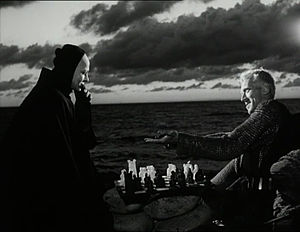Ubi populus habet domicilium, libertas est
“…et talis est quaeque res publica, qualis eius aut natura aut voluntas qui illam regit. itaque nulla alia in civitate, nisi in qua populi potestas summa est, ullum domicilium libertas habet; qua quidem certe nihil potest esse dulcius, et quae si aequa non est ne libertas quidem est. qui autem aequa potest esse, omitto dicere in regno, ubi ne obscura quidem est aut dubia servitus, sed in istis civitatibus in quibus verbo sunt liberi omnes? ferunt enim suffragia, mandant inperia magistratus, ambiuntur, rogantur, sed ea dant [magis] quae etiamsi nolint danda sint, et quae ipsi non habent unde ali petunt; sunt enim expertes imperii, consilii publici, iudicii delectorum iudicum, quae familiarum vetustatibus aut pecuniis ponderantur.”
Cicero, De re publica, I, XXXI
“…ogni costituzione politica risente dell’indole e della volontà di chi detiene il potere. Pertanto, solo in quello stato in cui il popolo ha il sommo potere, sussiste la vera libertà, di cui non v’è bene più prezioso; e che neppure può chiamarsi libertà, se non comporta una assoluta uguaglianza di diritti. Ma come può esservi assoluta uguaglianza, non dico nelle monarchie, dove i cittadini sono in condizione manifesta di servitù, ma in quei regimi repubblicani dove a parole sono tutti liberi? Il popolo infatti partecipa alle votazioni, assegna i comandi militari e le magistrature, ed è per questo sollecitato dai candidati e pregato a votare per essi. Ma si limita piuttosto a conferire quei poteri, che sarebbe ugualmente costretto a conferire, anche se non volesse, e solo formalmente è richiesto di quanto egli stesso, in realtà, non possiede. Non può infatti ottenere cariche militari, non prende parte alle deliberazioni pubbliche, è privo del potere giudiziario, che è affidato a giudici scelti, peiché il potere effettivo è retaggio e privilegio di famiglie aristocratiche o ricche.”
Cicerone, Dello stato, I, XXXI
“Why, as to that, the value of each form of government must be measured, partly by its own nature, partly by the will of the power which sways it. The advocates of democracy tell us, that no other constitution than that in which the people exercise sovereign power, can be the abode of liberty, which is certainly a most desirable blessing. Now that cannot be liberty, which is not equally established for all. And how can there be this character of equality, say they, under that monarchy where slavery is open and undisguised, or even in those constitutions in which the people seem free, but actually are so in words only? They give their suffrages indeed, they delegate authorities, they dispose of magistracies; but yet they only grant those things which, nolens volens, they are obliged to grant; things that are not really in their free power, and which it is vain to expect from them. For they are not themselves admitted to the government, to the exercise of public authority, or to offices of magistrates, which are permitted to those only of ancient families and large fortunes.”
Torniamo a studiare i classici: hanno già detto tutto in modo impareggiabile!
 |
| Pellizza da Volpedo – Il Quarto Stato |










